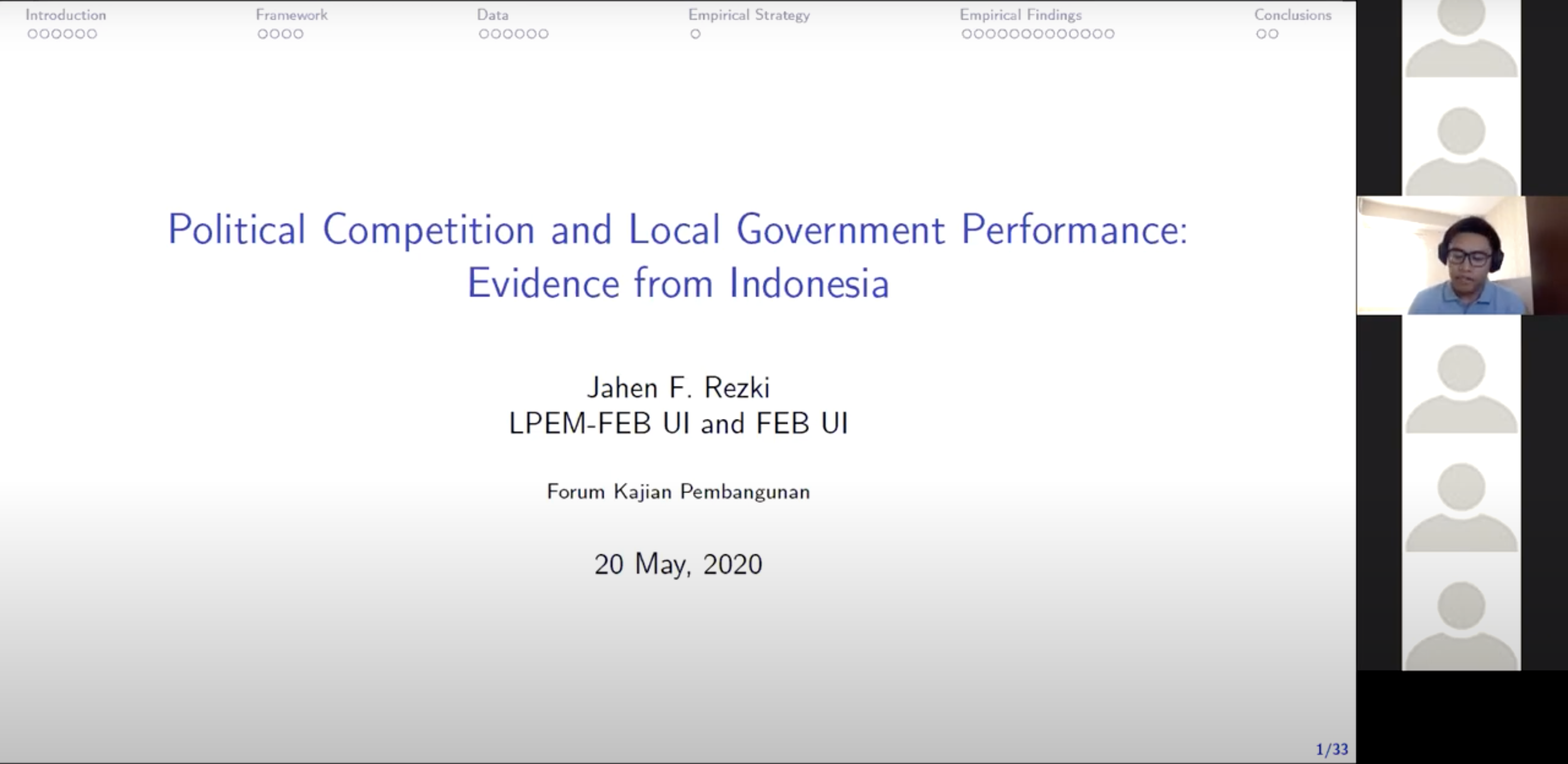FKP hosted by LPEM FEB UI with Jahen F. Rezki (LPEM FEB UI). Wednesday, 20 May 2020.
Keypoints:
- Political competition may affect government policies leading to economic performance, but the relationship is under-studied in newly democratized and developing countries like Indonesia.
- Using panel data at the district level in Indonesia, the study shows that political competition is associated with better (local) government policies through government spending in infrastructure and outcomes such as RGDP and household income per capita.
- The relationship between political competition and government policies leading to economic performance is understudied in newly democratized and developing countries like Indonesia. Past studies have mostly been done in developed or democratically-mature nations or done using cross-country panel data.
- Results of past studies have been inconclusive or have non-linear relationship. Political competition may enhance economic growth but may also lead to political instability. How is the relationship between the two in Indonesia?
- This study used district-level panel data in Indonesia with data on parliament elections results in 1999, 2004, and 2009 and data on socio-economic indicators of 2000-2013 from The World Bank and BPS (Statistics Indonesia).
- The study looks into several dependent variables to explain its explanatory variable. The study also uses two instrumental variables (IV) to avoid endogeneity bias.
- The dependent variables consist of outcome variables and policy variables which look into the real regional GDP (PDRB) per capita and growth as well as the per capita and government expenditure in several sectors.
- The explanatory variable is political competition represented using the Herfindahl-Hirschman Index (HHI) to see the competition or concentration of power of political parties in each district.
- The instrumental variables used to avoid bias coming from unobservable reasons and potential reverse causality are 1) the lag of political competition in neighboring districts within the same province and 2) historical political competition in the district using 1955 data.
- Results show that political competition affects economic outcomes.
- Higher political competition results in higher real RGDP per capita and higher growth of it.
- Higher political competition also results in higher household income per capita as the local government would reduce tax to increase disposable income to boost spending growth.
- Higher political competition means higher government expenditure in infrastructure, although not in other sectors.
- To test the robustness of the results, the study has looked into potential mechanisms such as how political competition affects resource allocation for non-agricultural sectors; extensions to capture dynamic and heterogeneous effects; and other data such as vote margin or effective number of party as alternative explanatory variables. During the Q&A session, concerns were raised on spatial correlation and on the relationship between the local government and the Regional People’s Representative Assembly (DPRD).





